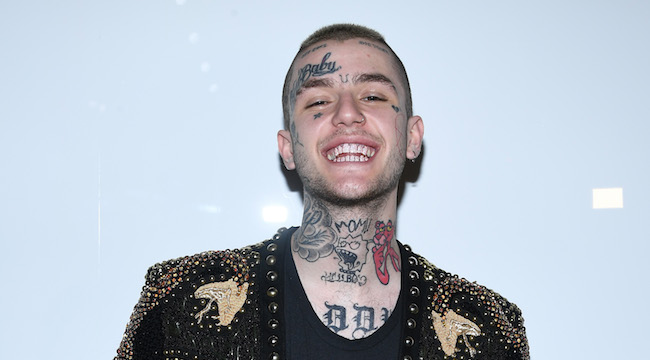
In response to up-and-coming “emo rapper” Lil Peep’s untimely death at 21 from an overdose on Xanax, People has published an interview with Peep’s brother, who says that the rapper’s depressed persona was merely a role he played in order to sell records.
Karl Åhr, who goes by Oskar, wants the rapper’s fans and friends to know that he was not as sad in person as he seemed on his social media and in his music. “We [the family] have heard there was some sort of substance he did not expect to be involved in the substance he was taking,” Oskar says, suggesting that he thinks that the Xanax pills that Peep was taking may have been tainted with unknown contaminants. Since Xanax is a prescription drug and can be difficult to acquire, it is sometimes “cut” with other drugs, or faked with Fentanyl, a powerful painkiller.
However, Oskar does admit that his brother’s drug use was exacerbated by fame. “[Early on] he didn’t drink alcohol, for example,” he explains, although he does confess that Peep did use marijuana, from a young age. “I can guarantee [drugs are] not something that would’ve been a part of his life if he was not a part of that specific culture. Not only was he a part of it, he’ll be remembered for making waves in it.”
The reason for the act? According to Oskar, it was all kayfabe, similar to characters in WWE. He remembers his brother, Gustav Åhr, as a separate entity from Lil Peep, the star. “My brother didn’t take five Xanax pills every day, but he would take them and then post on Instagram about it,” he says. “I wish it would have paid for him to be a little safer, but the world needed him to have superlative problems that he dealt with in superlative ways. Gus dealt with these problems much better than Lil Peep did, but people didn’t know Gus, and there’s a reason Gus doesn’t sell.”
“It makes me laugh to think about the days we watched WWE together but [Peep] mentioned how being a hip-hop artist is like being a pro-wrestling character. You have to be an actor,” Oskar says. “He gets paid to be sad. It’s what he made his name on. It’s what his image was in a sense.”
“He was so proud when he heard that there were people in the world who wanted to kill themselves, and then they didn’t because they listened to his music,” he continues. “He was helping people, he was not somebody who needed help. He was not as sad as people think he was. It’s frustrating as someone who remembers a happy brother.”






